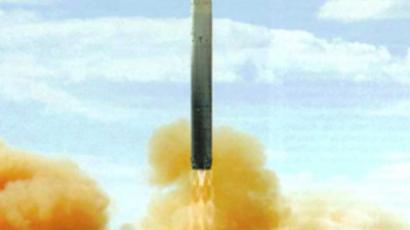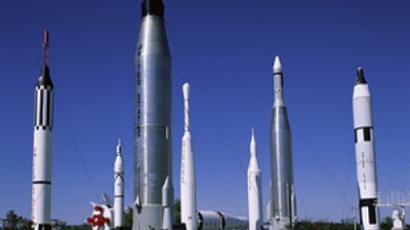Russia and NATO restore military ties
Russia and NATO have agreed to resume military cooperation at a meeting of foreign ministers in Greece, following a year of chilly relations due to last summer's conflict in the Caucasus.
Some may describe the relationship between NATO and Russia as one of grudging acceptance, broken by distinct periods of frostiness. After a rather lengthy cold spell, it seems that the two have eventually managed to put their differences aside, a development both sides have confirmed at an informal meeting of NATO foreign ministers on the Greek island of Corfu.
“Many words to restore trust have been said,” said Russian Foreign Minister Sergey Lavrov said. “We are totally for this. We are saying the same thing. This should not remain only in words. It must be translated into a language of action.”
NATO's secretary general, Jaap de Hoop Scheffer, said that it will take time for Russia and NATO to find common ground on Georgia, but that this problem should not be an obstacle to cooperation.
“My bottom line is, ‘Russia needs NATO and NATO needs Russia.’ I think that was the spirit of the meeting despite some fundamental differences on a number of issues,” NATO’s chief told journalists on Saturday.
When the Georgian bombs stopped falling on South Ossetia in August last year and the tanks withdrew from the battlefield, a row between NATO and Russia escalated into almost complete break in ties. Moscow accused Brussels of backing Georgia’s actions, while NATO believed that Russia had violated cease-fire agreements.
As a result, numerous joint Russia-NATO military projects were frozen and the NATO-Russia Council was suspended for more than eight months.
Scheffer, who is ending his term as NATO head, said Saturday it had been his ambition to leave his successor with a NATO-Russia Council that was “up and running.”
Sergey Lavrov, for his part, pointed out the “positive outcome” of the meeting, adding that both sides should take into consideration the new situation in the region.
“We discussed the situation in the Caucasus,” Lavrov said, referring to Russia's recognition of Abkhazia and South Ossetia as independent states. “Our positions still differ there, but we all need to accept new realities.”
He said, though, that when it comes to practical matters, more disagreements often arise.
“I pointed out to our colleagues that when we talk in the bilateral format, they all say things that seem to indicate they have learned the lesson we expected them to learn,” Lavrov said. “But whenever we meet in the multilateral format, their position is quite different. Perhaps this is because the environment is different.”
Moscow insists its decisions after the conflict in South Ossetia in August 2008 are “irreversible.” Nonetheless, he suggested a possible way of settling differences on the issue.
“We would like international observers, including from the UN and the OSCE, to work in the region,” Lavrov said. “The UN Security Council has received our proposals on how to make such work possible without interfering with the questions of status.”
At the meeting de Hoop Scheffer also expressed hope that the renewed cooperation would extend to crucial projects in places such as Afghanistan and Somalia.
Relations thawing
Brussels seems to have made an about face in its attitude toward Moscow. The first indication was the organization’s unwillingness to grant membership action plans to Georgia and Ukraine, a prospect Moscow has always said was totally unacceptable.
“Certainly, from all points of view these countries are not ready – neither from military point of view nor from political point of view, or the point of view of stability in the region,” said Yury Rogulov, director at the Roosevelt Foundation for USA Studies. “They are not ready for such drastic changes in their positions.”
Foreign Minister Lavrov said the South Ossetian conflict exposed the weakness in European security. To address the issue, he advanced an initiative proposed by President Dmitry Medvedev to develop a more inclusive security architecture. Its main aim is to encourage all European states to act as one against common threats. And according to Lavrov, several European countries, including NATO members, have already responded positively to the idea.
The meeting at Corfu was described as informal. But given that it is the first major political contact between NATO and Russia since last year’s events in South Ossetia, military officials from both Russia and NATO believe that the meeting will help to repair relations between Moscow and Brussels.














